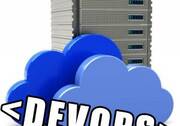How is Cloud Computing Affecting Traditional Software Delivery? The SaaS Effect
Source:- 1reddrop.com If you are running a business, there is a near 100% chance that you are already using some form of SaaS – Software as a Service. According to a recent a survey by Northbridge and Wikibon, one in seven companies are using SaaS. But that number should be much higher if you include Email, YouTube and social media applications such as facebook, Twitter, LinkedIn and so on. These are applications that have already embedded themselves into our lives.
Read more
















